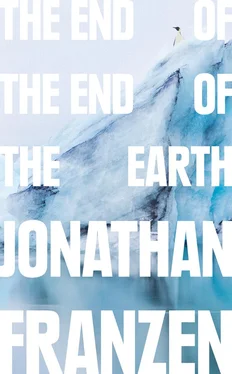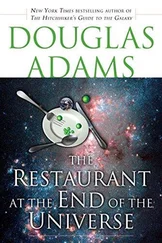After the election, Mark Zuckerberg did briefly seem to take responsibility, sort of, for having created the platform of choice for fake news about Clinton, and to suggest that Facebook could become more active in filtering the news. (Good luck with that.) Twitter, for its part, kept its head down. As Trump’s tweeting continued unabated, what could Twitter possibly say? That it was making the world a better place?
In December, my favorite Santa Cruz radio station, KPIG, began running a fake ad offering counseling services to addicts of Trump-hating tweets and Facebook posts. The following month, a week before Trump’s inauguration, the PEN American Center organized events around the country to reject the assault on free speech that it claimed Trump represented. Although his administration’s travel restrictions did later make it harder for writers from Muslim countries to have their voices heard in the United States, the one bad thing that could not be said of Trump, in January, was that he had in any way curtailed free speech. His lying, bullying tweets were free speech on steroids. PEN itself, just a few years earlier, had given a free-speech award to Twitter, for its self-publicized role in the Arab Spring. The actual result of the Arab Spring had been a retrenchment of autocracy, and Twitter had since revealed itself, in Trump’s hands, to be a platform made to order for autocracy, but the ironies didn’t end there. During the same week in January, progressive American bookstores and authors proposed a boycott of Simon & Schuster for the crime of intending to publish one book by the dismal right-wing provocateur Milo Yiannopoulos. The angriest of the bookstores talked of refusing to stock all titles from S&S, including, presumably, the books of Andrew Solomon, the president of PEN. The talk didn’t end until S&S voided its contract with Yiannopoulos.
Trump and his alt-right supporters take pleasure in pushing the buttons of the politically correct, but it only works because the buttons are there to be pushed—students and activists claiming the right to not hear things that upset them, and to shout down ideas that offend them. Intolerance particularly flourishes online, where measured speech is punished by not getting clicked on, invisible Facebook and Google algorithms steer you toward content you agree with, and nonconforming voices stay silent for fear of being flamed or trolled or unfriended. The result is a silo in which, whatever side you’re on, you feel absolutely right to hate what you hate. And here is another way in which the essay differs from superficially similar kinds of subjective speech. The essay’s roots are in literature, and literature at its best—the work of Alice Munro, for example—invites you to ask whether you might be somewhat wrong, maybe even entirely wrong, and to imagine why someone else might hate you.
Three years ago, I was in a state of rage about climate change. The Republican Party was continuing to lie about the absence of a scientific consensus on climate—Florida’s Department of Environmental Protection had gone so far as to forbid its employees to write the words climate change , after Florida’s governor, a Republican, insisted that it wasn’t a “true fact”—but I wasn’t much less angry at the left. I’d read a new book by Naomi Klein, This Changes Everything , in which she assured the reader that, although “time is tight,” we still have ten years to radically remake the global economy and prevent global temperatures from rising by more than two degrees Celsius by the end of the century. Klein’s optimism was touching, but it, too, was a kind of denialism. Even before the election of Donald Trump, there was no evidence to suggest that humanity is capable—politically, psychologically, ethically, economically—of slashing carbon emissions quickly and deeply enough to change everything. Even the European Union, which had taken the early lead on climate, and was fond of lecturing other regions on their irresponsibility, needed only a recession in 2009 to shift its focus to economic growth. Barring a worldwide revolt against free-market capitalism in the next ten years—the scenario that Klein contended could still save us—the most likely rise in temperature this century is on the order of six degrees. We’ll be lucky to avoid a two-degree rise before the year 2030.
In a polity ever more starkly divided, the truth about global warming was even less convenient to the left than to the right. The right’s denials were odious lies, but at least they were consistent with a certain cold-eyed political realism. The left, having excoriated the right for its intellectual dishonesty and turned climate denialism into a political rallying cry, was now in an impossible position. It had to keep insisting on the truth of climate science while persisting in the fiction that collective world action could stave off the worst of it: that universal acceptance of the facts, which really might have changed everything in 1995, could still change everything. Otherwise, what difference did it make if the Republicans quibbled with the science?
Because my sympathies were with the left—reducing carbon emissions is vastly better than doing nothing; every half degree helps—I also held it to a higher standard. Denying the dark reality, pretending that the Paris Accord could avert catastrophe, was understandable as a tactic to keep people motivated to reduce emissions; to keep hope alive. As a strategy, though, it did more harm than good. It ceded the ethical high ground, insulted the intelligence of unpersuaded voters (“Really? We still have ten years?”), and precluded frank discussion of how the global community should prepare for drastic changes, and how nations like Bangladesh should be compensated for what nations like the United States have done to them.
Dishonesty also skewed priorities. In the past twenty years, the environmental movement had become captive to a single issue. Partly out of genuine alarm, partly also because foregrounding human problems was politically less risky—less elitist—than talking about nature, the big environmental NGOs had all invested their political capital in fighting climate change, a problem with a human face. The NGO that particularly enraged me, as a bird lover, was the National Audubon Society, once an uncompromising defender of birds, now a lethargic institution with a very large PR department. In September 2014, with much fanfare, that PR department had announced to the world that climate change was the number-one threat to the birds of North America. The announcement was both narrowly dishonest, because its wording didn’t square with the conclusions of Audubon’s own scientists, and broadly dishonest, because not one single bird death could be directly attributed to human carbon emissions. In 2014, the most serious threats to American birds were habitat loss and outdoor cats. By invoking the buzzword of climate change, Audubon got a lot of attention in the liberal media; another point had been scored against the science-denying right. But it was not at all clear how this helped birds. The only practical effect of Audubon’s announcement, it seemed to me, was to discourage people from addressing the real threats to nature in the present.

I was so angry that I decided that I’d better write an essay. I began with a jeremiad against the National Audubon Society, broadened it into a scornful denunciation of the environmental movement generally, and then started waking up in the night in a panic of remorse and doubt. For the writer, an essay is a mirror, and I didn’t like what I was seeing in this one. Why was I excoriating fellow liberals when the denialists were so much worse? The prospect of climate change was every bit as sickening to me as to the groups I was attacking. With every additional degree of global warming, further hundreds of millions of people around the world would suffer. Wasn’t it worth an all-out effort to achieve a reduction of even half of one degree? Wasn’t it obscene to be talking about birds when children in Bangladesh were threatened? Yes, the premise of my essay was that we have an ethical responsibility to other species as well as to our own. But what if that premise was false? And, even if it was true, did I really care personally about biodiversity? Or was I just a privileged white guy who liked to go birding? And not even a pure-hearted birder—a lister!
Читать дальше













